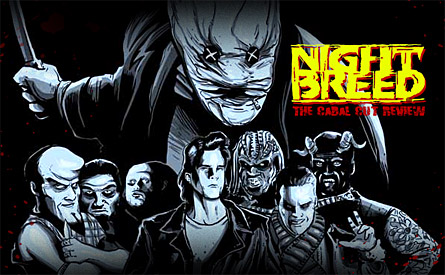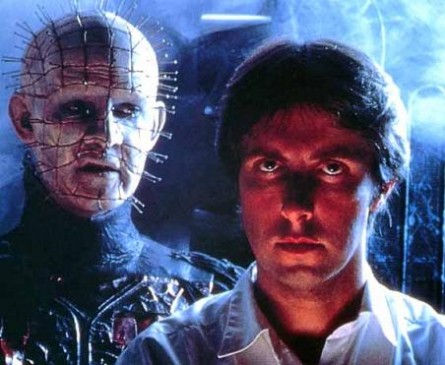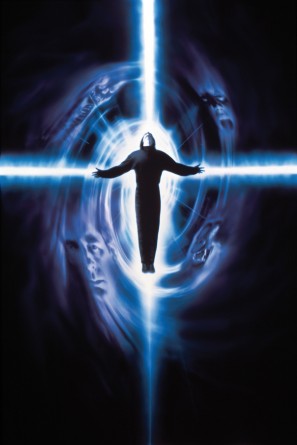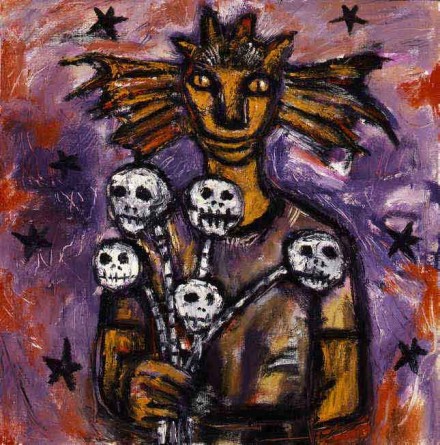
Clive Barker’s Nightbreed: The Cabal Cut (2012) Review
“It’s true. God’s an Astronaut, Oz is over the rainbow, and Midian is where the monsters live.”
Despite his place among the greatest living “Masters of Horror,” Clive Barker has still only directed three movies. Sure, fans like to lump in his producing projects like Books of Blood, Midnight Meat Train, the first two Candyman flicks, and three Hellraiser sequels among his major contributions to genre cinema, but these aren’t really Clive Barker films. No, the maestro’s films push the limits of cinema in ways directors like Bernard Rose, Anthony Hickox, Tony Randel, and Ryuhei Kitamura could never manage. This isn’t a slight to these esteemed directors, but rather a compliment to Barker’s uniquely visionary style. His films are sexual, carnal, twisted, and hellacious works that invert traditional genre conventions in ways that make them impossible to duplicate without the man’s total creative control.

Think about it. Hellraiser is a Faustian domestic drama about a box that opens a doorway into hell, one dominated by S&M demon monks who intermingle pain and pleasure as they tear their victims’ souls apart. Lord of Illusions is a hard-boiled film noir about a paranormal detective investigating a Vegas magician whose parlor tricks may be rooted in a darker sorcery — one that could hold the key to a hell on earth. Nightbreed chronicles the struggle between a serial killing psychiatrist and his patient, an undead member of a society of monsters that live in a city beneath a Canadian graveyard.
Somehow, these what-the-fuck scripts were financed, produced, and distributed to theaters around the globe. Not only that, one of them, Hellraiser, evolved into a highly successful film series that continues to clutter video stores and streaming services to this day. So why hasn’t Barker continued directing these thoroughly mind-fucking, fantastical, and imaginative exercises in celluloid?
Well, to begin with, he’s more of a renaissance man than he is a straight filmmaker. He has dabbled consistently in everything from action figures to video games, but most often he tends to make his home in novels and paintings. In these mediums, he is unshackled from budgetary constraints, studio influence, compromises and concessions that are common to the filmmaking process. As evidenced in everything from his Books of Blood series to Abarat and beyond, Barker builds universes of his own accord, populated by the horrors and delights of a seemingly limitless imagination. He supplements his written works by bringing his creations to life in full vivid color, conjured by oil paints on a large canvas. With this in mind, ask yourself: If you could stand on your own financially, critically, and artistically in full control of your art and writing, would you really feel like going back to a medium as unpredictable and unwieldy as film?
Besides its cousin, television and video games, film is the only form of storytelling that can start on a blank page by one author, be re-written by a limitless number of other writers, be shot and re-shot by other directors, and then pieced back together by a completely different team of editors. Yes, it is the most popular form of storytelling the world over, but the creative cost will inevitably take its toll. Barker found this out during the production of Nightbreed (an adaptation of his short novel Cabal), which was produced and financed by Morgan Creek and Fox.
Continue reading the review of Nightbreed: The Cabal Cut on the jump…








Stay Connected